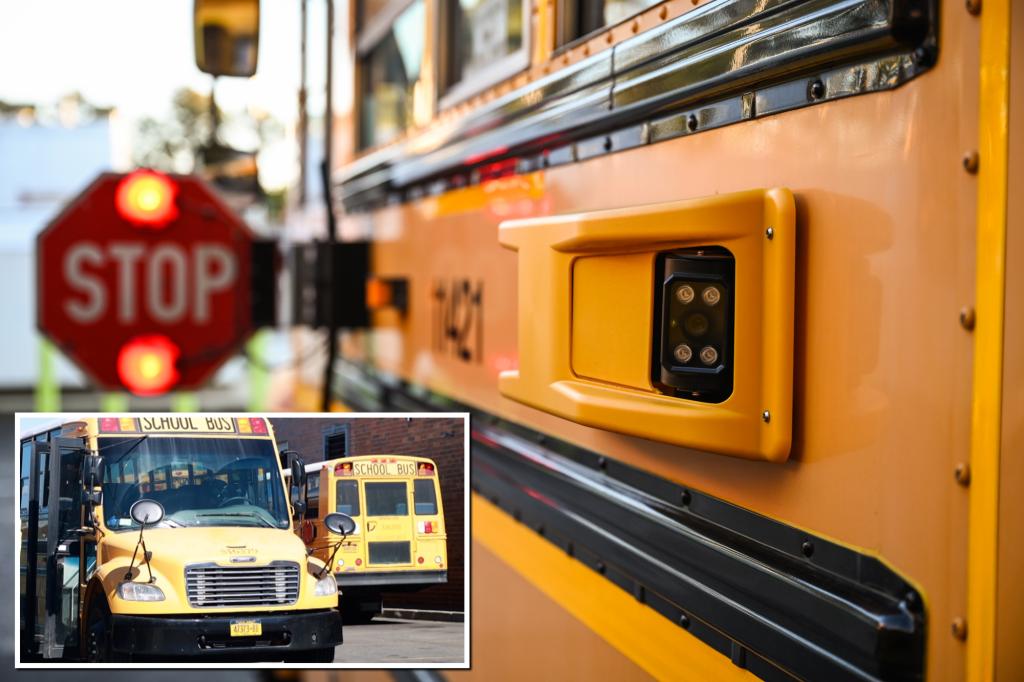The town of Hempstead, Long Island, finds itself embroiled in controversy surrounding its school bus camera ticketing program, having reportedly issued over 80,000 tickets totaling approximately $20 million to drivers accused of illegally passing stopped school buses. The crux of the issue lies in the apparent lack of authorization from the local school districts to implement such a program. Four districts – Baldwin, Hempstead, Lawrence, and Valley Stream 13 – where these tickets were distributed over the past two years, maintain they never granted the town permission to issue citations on their behalf. This oversight raises significant legal questions about the validity of the issued tickets and the potential for a class-action lawsuit. The Lawrence school district has explicitly declared the tickets issued within its jurisdiction “void,” further underscoring the legal ambiguity surrounding this situation.
The controversy highlights a discrepancy between the town’s actions and established state and local laws. While New York State has long prohibited drivers from passing stopped school buses actively loading or unloading children, and a 2019 law authorized local governments to install cameras and issue tickets to violators, the law explicitly requires participating school districts to formally approve the use of cameras on their buses. Hempstead, having passed its own bus camera law in 2022 and subsequently contracted with BusPatrol America to administer the program, appears to have overstepped its authority by issuing tickets in districts that hadn’t formally opted into the program. This has led to confusion and frustration among residents and school district officials who question the legality and ethical implications of the town’s actions.
The scale of the ticketing operation is striking. Hempstead has issued over 270,000 bus-passing tickets since the program’s inception, averaging roughly one ticket for every three residents. BusPatrol America, the private firm managing the program, retains 45% of the $250 ticket revenue, with the town retaining the remainder. While approximately 24 districts have endorsed the program, a significant number of citations, estimated at 50,000, were issued within the Hempstead Union Free School District, which notably did not participate. Even the president of Hempstead’s district school board received a ticket, raising further questions about the program’s implementation and oversight.
The town’s justification for issuing tickets in non-participating districts centers on the argument that buses from participating districts often travel through non-participating districts. Hempstead officials claim that as long as the bus originates from a participating district, tickets can be legally issued anywhere in the town, regardless of the specific district where the alleged violation occurred. This interpretation, however, is being challenged by legal experts who argue that the town’s authority to issue tickets is contingent upon the explicit consent of the school district where the violation takes place. The differing interpretations of the law have created a legal gray area that is likely to be further scrutinized.
The controversy extends beyond the issue of unauthorized ticketing. Concerns have been raised regarding the town’s overall handling of the program and its adherence to legal procedures. An attorney who has previously sued both the Town of Hempstead and Suffolk County over the camera program argues that the town has consistently disregarded legal mandates and court precedents related to issuing notices of liability, a necessary step in the ticketing process. This pattern of allegedly ignoring legal requirements further complicates the situation and casts doubt on the town’s justification for issuing tickets in non-participating districts.
The ongoing dispute underscores a critical need for clarity and transparency in the implementation of school bus camera programs. The seemingly arbitrary issuance of tickets, coupled with the substantial revenue generated, raises concerns about the potential for abuse and the prioritization of profit over public safety. The lack of clear communication and collaboration between the town and the affected school districts has created confusion and distrust, highlighting the importance of establishing clear guidelines and obtaining explicit consent from all stakeholders before implementing such programs. The legal challenges and potential class-action lawsuits looming over the Town of Hempstead underscore the potential consequences of disregarding legal procedures and failing to secure proper authorization. The case serves as a cautionary tale for other municipalities considering similar camera programs, emphasizing the importance of meticulous adherence to legal requirements and transparent communication with all involved parties.

